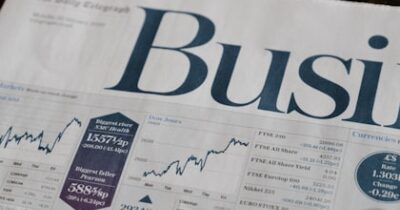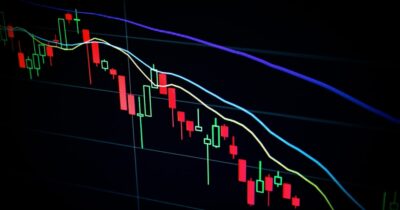The U.S. credit rating downgrade by Moody’s has sent shockwaves through financial markets, reigniting concerns about economic stability and prompting investors to reassess their portfolios. The downgrade, which raised doubts about the U.S. government’s ability to manage debt, has intensified the “Sell America” trade, with investors selling stocks and bonds to mitigate risk. This shift could complicate negotiations around the Republican tax plan, which faces scrutiny over its impact on the economy and fiscal policy.
Moody’s Credit Rating Downgrade Sparks Market Reaction
Moody’s downgraded the U.S. credit rating to Baa1 from Baa3, citing concerns over rising debt levels, inflation, and the government’s fiscal strategy. The move, which came amid a broader economic slowdown, has triggered a sell-off in U.S. equities and fixed-income assets. Investors are now prioritizing safer assets, such as government bonds, to protect capital amid uncertainty. The downgrade has also heightened volatility in the stock market, with indices like the S&P 500 and Nasdaq experiencing mixed performance as traders weigh the risks of prolonged market instability.
Impact on Tax Plan Negotiations
The downgrade has intensified political and economic tensions, particularly as the Republican tax plan faces scrutiny over its potential to exacerbate debt and reduce government spending. Critics argue that the plan’s proposed tax cuts could strain the budget, while supporters claim it will stimulate growth. The “Sell America” trade has amplified these debates, with lawmakers and economists debating whether to prioritize fiscal discipline or economic growth. The U.S. government’s response to the downgrade will likely shape the political landscape, as both sides seek to balance short-term economic needs with long-term stability.
Market Reactions and Investor Behavior
Immediate market reactions have been mixed. While some investors are selling stocks to avoid further losses, others are buying defensive assets to hedge against broader economic risks. The U.S. Treasury and other financial institutions are also adjusting their strategies, with a focus on liquidity and risk management. The downgrade has also sparked discussions about the role of central banks in stabilizing markets, with some analysts suggesting that monetary policy could play a critical role in mitigating the impact of the downgrade.
Broader Implications for the Economy
The downgrade has broader implications for the U.S. economy, potentially slowing growth and increasing borrowing costs. If the government fails to address the debt crisis, it could lead to a recession or a severe economic downturn. However, the political climate remains uncertain, with both sides vying for support. The “Sell America” trade may also influence global markets, as investors reassess U.S. risk premiums and consider alternative investment opportunities.
Key Takeaways
1. Market Volatility: The Moody’s downgrade has triggered significant market reactions, with investors prioritizing safety over growth.
2. Political Tensions: The downgrade has intensified debates over the U.S. tax plan, with lawmakers and economists navigating a complex balance between fiscal responsibility and economic growth.
3. Economic Risks: The downgrade raises concerns about long-term economic stability, potentially slowing growth and increasing borrowing costs.
4. Global Impact: The U.S. credit rating downgrade may influence global investors, prompting a reevaluation of U.S. risk premiums and investment strategies.
In summary, the U.S. credit rating downgrade has created a volatile market environment, with investors seeking stability amid growing economic uncertainty. The political and economic implications of the downgrade will continue to shape financial markets, with policymakers and investors closely monitoring the situation to navigate the challenges ahead.
Source: New York Times Business





1 thought on “U.S. Credit Rating Downgrade Sparks ‘Sell America’ Trade as Investors Seek Stability”